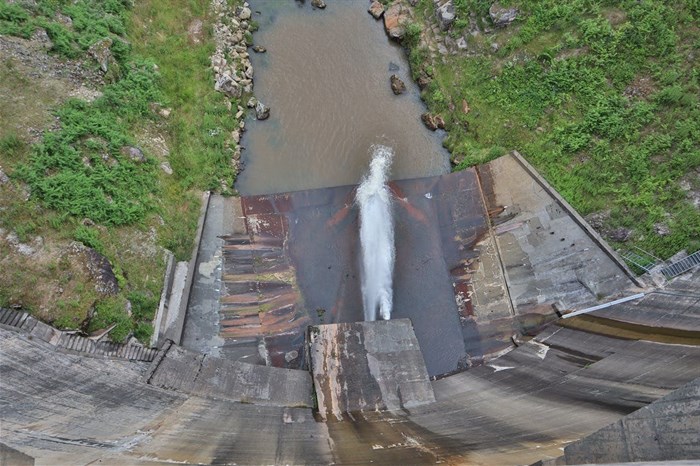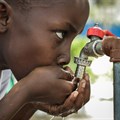Today South Africa joins the globe in marking World Water Day which is celebrated annually on 22 March.

Image source: El Capra from
PexelsSouth African Research Chairs Initiative (SARChI) Chairperson, Professor Bongani Ncube has underscored the need to improve access to productive water across South Africa’s disadvantaged communities.
“I’m talking about water for productivity, water for agriculture, [and] water that will take people out of poverty,” Professor Ncube said.
The SARChI was established in 2006 by the Department of Science and Technology (DST) and the National Research Foundation (NRF).
The main goal of the Research Chairs initiative is to strengthen and improve research and innovation capacity of public universities for producing high quality postgraduate students and research and innovation outputs.
Ncube is based at the Cape Peninsula University of Technology, Centre for Water and Sanitation Research, under the Faculty of Engineering and the Built Environment.
She is a Chairperson under the Department of Science and Innovation and the NRF (DSI-NRF) SARChI, established by the Science and Innovation and the National Research Foundation (NRF) in 2006.
Ncube said the country still has issues in these areas because the licensing process has not worked for many communities for a long time.
“The compulsory licensing, validation and verification processes, which were supposed to enable the release of excess water to communities, has not worked very well. The process has improved but we still have many communities that do not have access to productive water.
“At the household level, there are municipalities where access to basic water and sanitation services has become a challenge. That is why you see these water protests in South Africa,” Ncube said.
This year’s World Water Day is observed under the theme, 'Leveraging Water for Peace', which encourages communities and countries to use water as a tool for peace, when cooperating over this precious shared resource.
Ncube said South Africa relates to the 2024 global theme at both household and broader community levels because of its historical past, and also in terms of economic advancement, which brings under the spotlight policy shifts required to redress past access patterns.
“South Africa has a very complicated history when it comes to access to resources, including water. The historical access [which] dates back centuries when water access mechanisms favoured the more privileged white communities, remains a challenged,” said Ncube.
After 1994, policies, legislation, and strategies were developed to make water equitably accessible to everyone.
Ncube noted that access to productive water in some communities has improved following the enactment of the National Water Act of 1998, which aims to reform the laws related to water, including redress of past racial and gender discrimination; promotion of equitable access to water; and facilitation of social and economic development.
Draft National Water Amendment Bill
Ncube commended the Draft National Water Amendment Bill, which was published in the Government Gazette for public comment on 17 November 2023.
“One of the intentions of that Bill is to redress the past inequity and to achieve equitable access for all communities. There are efforts that are taking place at the moment. The Bill is being revised to ensure that those water allocation issues that were not addressed by the National Water Act of 1998 are addressed.”
Provision of basic water to households has vastly improved since 1994.
According to Statistics South Africa data, 88.7% of the country’s households had access to water by 2021.
“Climate change and drought add a further layer of complication when it comes to water access. But it is important for government to realise that, while situations like that occur, it is the poor that are the most affected and it is important that measures are put in place in terms of providing access,” Ncube said.








































